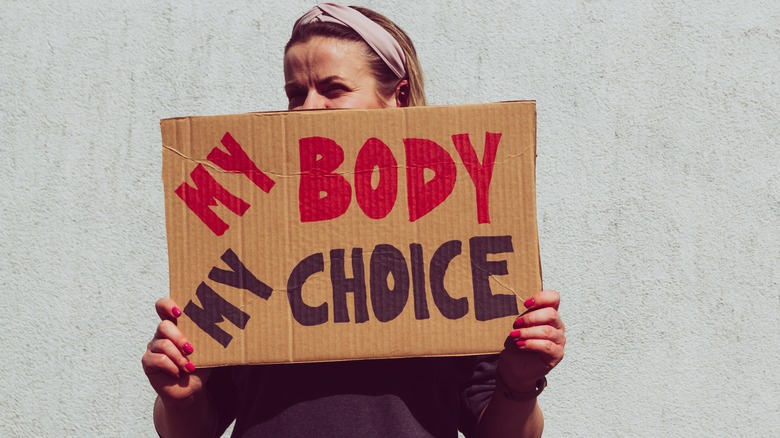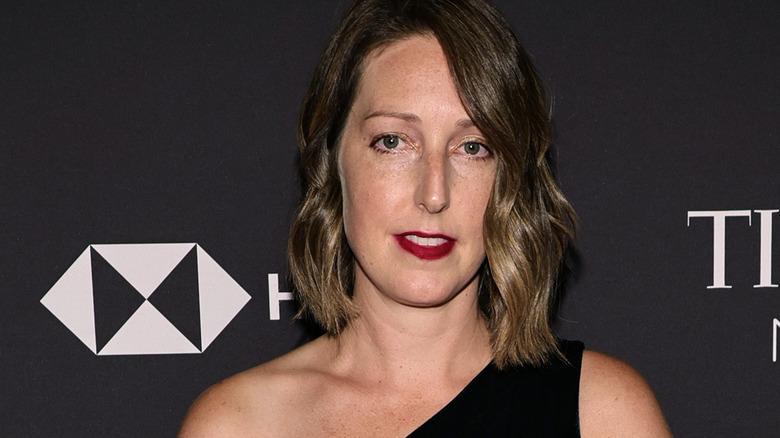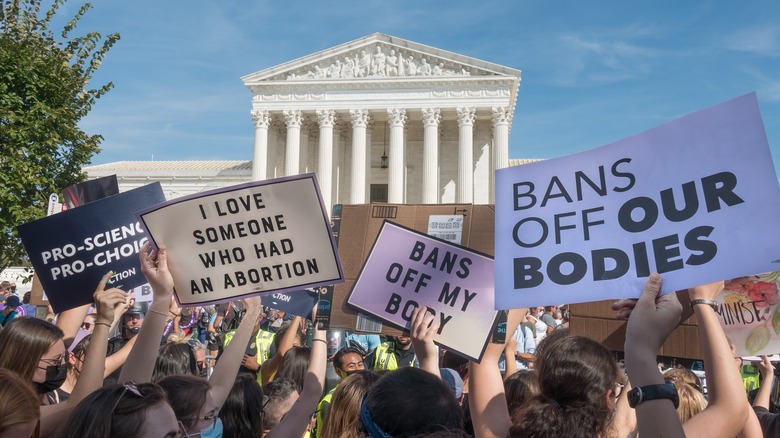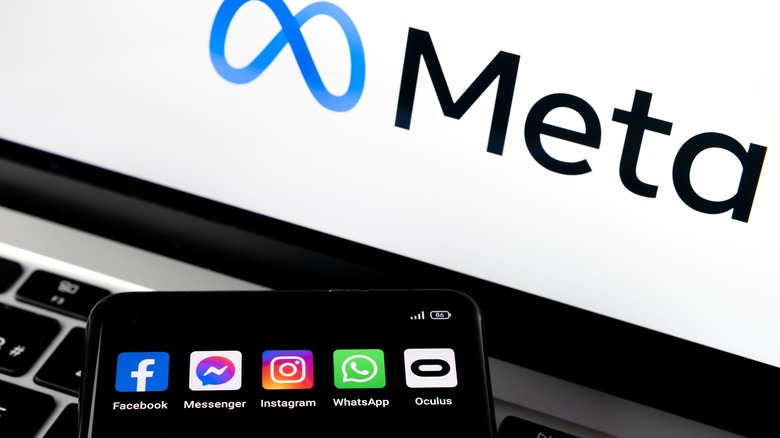Two Female Doctors Sue Indiana's AG Over Confidential Abortion Records
Personal data has a long history of being used against women as a way to police their bodies. Unfortunately, you don't have to look back far to find examples; in present-day Iran, The Guardian reports security forces are using facial recognition technology to identify and punish women protesting their compulsory hijab laws. In Nebraska, the Norfolk police department collected a 17-year-old's private Facebook information, including direct messages, giving the United States a look at how illegal abortions might be prosecuted in this new post-Roe America (via Motherboard).
In Indiana, NPR reports state Attorney General Todd Rokita is going further than Facebook. A lawsuit filed by Dr. Caitlin Bernard revealed that Rokita issued "sweepingly broad document subpoenas to a hospital system" including "the entire medical file" for Bernard's 10-year-old rape victim patient.
Originally reported by The Indianapolis Star (and later verified by other outlets), Bernard was contacted to help a pregnant 10-year-old. The patient was based in Ohio where, immediately following the Dobbs v. Jackson Health Organization, abortion was banned without exception at six weeks of pregnancy. The patient was six weeks and three days pregnant and could legally not be helped in their home state.
But according to Politico, Rokita is claiming that what he's investigating are complaints against Bernard and the facility she works at. These complaints, Politico notes, include multiple different people alleging Bernard failed to file proper paperwork when she treated the 10-year-old patient — a claim that Politico and others proved was unfounded.
Indiana Attorney General Todd Rokita promised to prosecute Dr. Bernard
When Dr. Caitlin Bernard agreed to provide a pregnant 10-year-old rape victim an abortion, the procedure was still legal in Indiana. Initially, there was a lot of skepticism about the story reported in The Indianapolis Star. As the Associated Press explains, outlets including the Wall Street Journal, Washington Post, and Fox News raised many questions about an "abortion story too good to confirm."
Indiana Attorney General Todd Rokita even went on Fox News, telling host Jesse Waters that he was going to investigate Bernard (via Business Insider). During the interview, Rokita made startling claims, like Bernard was "an abortion activist acting as a doctor" and that she covered up the rape of a child. Rokita also told Fox News he'd be investigating whether or not Bernard breached patient confidentiality by talking to The Star, per the Associated Press.
If Bernard had failed to report the abortion, she would have violated laws in both Ohio and Indiana, Politico explains. However, the news outlet obtained documents showing the doctor had reported the abortion and the rape within the required three-day limit. Ryan Mears, the prosecutor for Indianapolis, adds that it was his office, not the Attorney General's, that had jurisdiction over Bernard's case (via Associated Press).
Even now that the Columbus Dispatch has reported a man has confessed to raping the 10-year-old Bernard treated, Rokita is still investigating Bernard and the facility where she works (via NPR).
Doctors allege Indiana's AG is on a fishing expedition
Indiana Attorney General Todd Rokita has allegedly subpoenaed private medical records of five patients based on claims from unrelated parties, Politico reports. Dr. Caitlin Bernard and Amy Caldwell, whose patients Rokita's subpoena targets, filed a lawsuit this week asking Indiana state court to block Rokita's request.
The Attorney General's office issued a statement Thursday stating they were just following their "statutory obligation" to investigate "thousands of potential licensing, privacy, and other violations" each year (via NPR). But according to the lawsuit Bernard and Caldwell filed, the consumer complaints against Bernard are from people who both live outside of Indiana and have never been her patients. The statement by Rokita's office argues that it's normal for complaints against doctors to come in from non-patients.
Kathleen Delaney, Bernard's attorney, told NPR that she's worried about what Indiana Attorney General Todd Rokita's true motives are. For her, Rokita's focus on Bernard is an intimidation tactic; a warning to other patients seeking abortions and providers giving them that they, too, will be subjected to harassment and defamation.
In the lawsuit, Bernard and Caldwell also point out the larger implications allowing subpoenas for abortion records. According to Politico, the lawsuit warns that Rokita's actions will dissuade patients, even in emergency situations, from seeking abortion care. The lawsuit adds that the subpoenas are a threat to patients seeking legal abortions, as their "health care decisions could be exposed as part of a merit less investigation."
The future of abortion surveillance
In the wake of the Dobbs v. Jackson Health Organization decision, warnings from reproductive and digital freedom groups flooded social media (via CNN). To help protect potential patients, the Digital Defense Fund even created a guide on how to better mask your digital footprint.
Elisabeth Smith, director for State Policy and Advocacy at the Center for Reproductive Rights, explained to CNN that people's fears stem from the fact authorities have access to much more surveillance technology now. We live in a time when cell phone geolocation, medical information shared in third-party apps, and even private messaging can be sold to "anyone with a credit card" (via CNN).
If Attorney General Todd's subpoena is allowed to stand, it could provide law enforcement another tool for enforcing abortion bans. PBS NewsHour reports that Meta, Facebook's parent company, states their policy is to "comply with government requests for user information only where we have a good-faith belief that the law requires us to do so." As we already saw in Nebraska, Meta believes they should hand over user data (via Motherboard).
Cynthia Conti-Cook, a civil rights attorney and tech fellow at the Ford Foundation, told CNN that unfortunately, once law enforcement has access to someone's digital device, everything from text messages to internet searches is "fair game." So as long as law enforcement can get access to someone's cell phone, they're able to access any app, browser history, texts, or emails available on the device.



